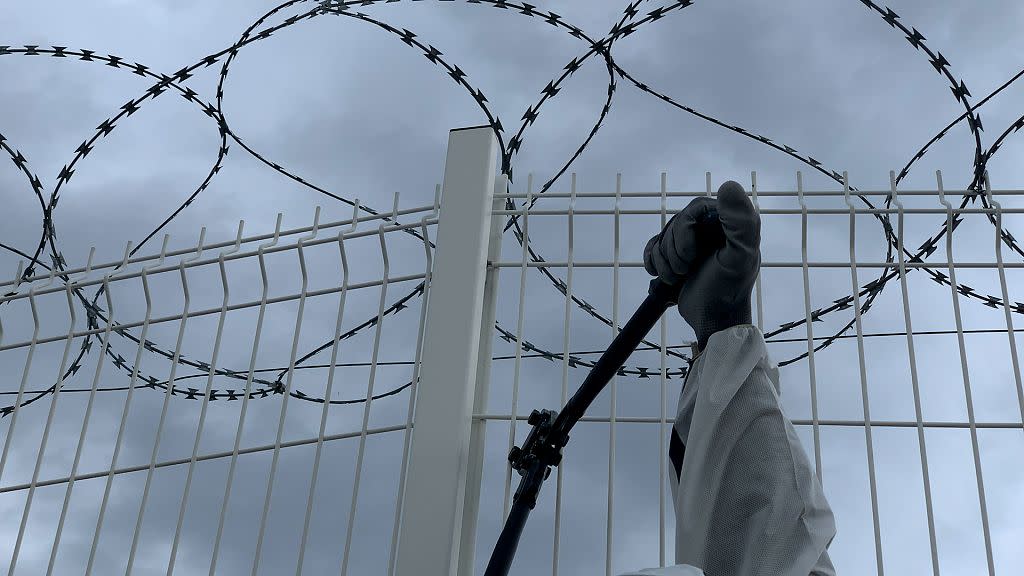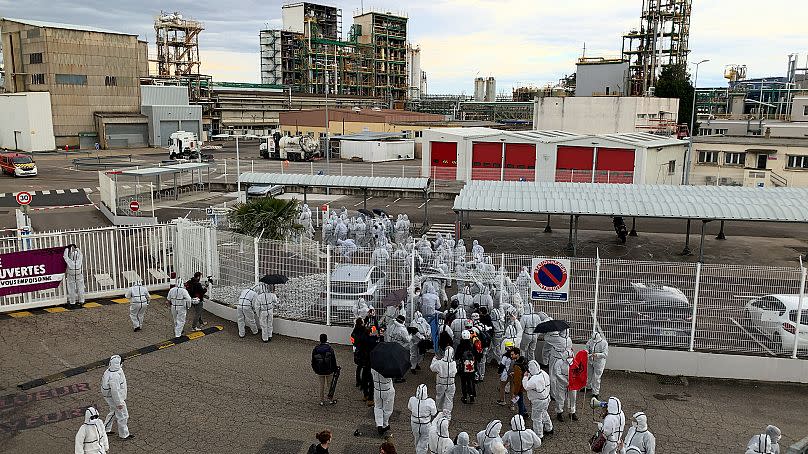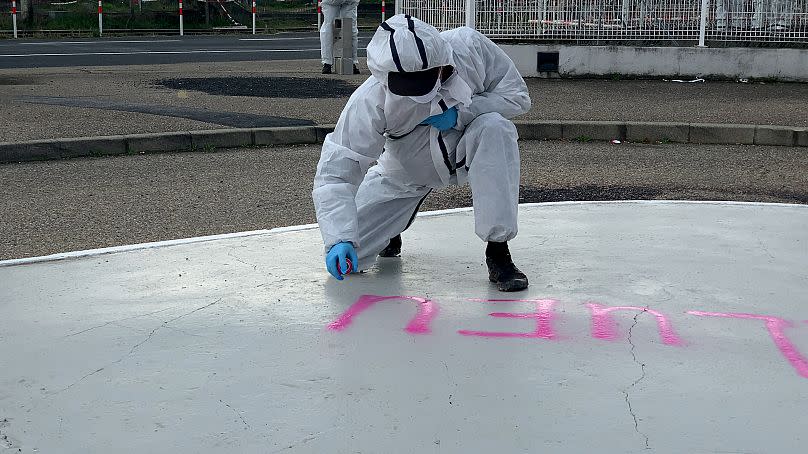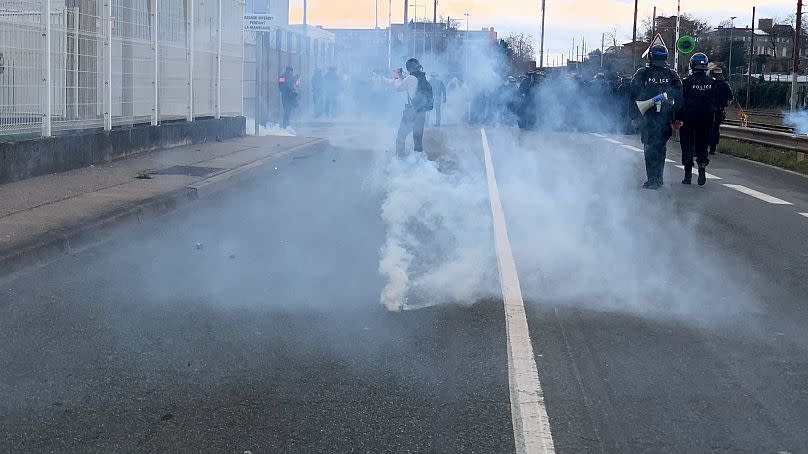‘If we don’t act, who will?’: Meet the French activists who stormed a forever chemical plant

“It’s not because it’s illegal that you shouldn’t do it. If we don’t act, who will?”, *Miel tells Euronews Green. It’s an unusual Saturday morning for the 19-year-old member of Extinction Rebellion: she is about to break the law.
Today’s target is the French chemical giant Arkema based near Lyon. The company is accused of releasing toxic chemicals into the environment, PFAS (Per-and polyfluoroalkyl compounds), dubbed “forever chemicals” for their indestructible nature.
400 activists from Extinction Rebellion and Youth for Climate have travelled from across France to protest against their manufacture, according to the activist network. The police say they counted around one hundred participants.

‘We’d rather do something else with our weekends’
The meeting point is undisclosed until the last minute. To remain discreet, a series of other precautions are taken before departure. Phones are handed in at the entrance and no one is to mention their real names here - everyone uses nicknames. We are not allowed to film people’s faces and only a few agree to answer our questions on camera. The atmosphere is feverish as activists await instructions.
Fear grips the group as an unmarked police car is spotted in front of the premises where they are preparing before taking action. But the urge to act on for the climate is higher than the fear of police detention.

*Gallyah left her two children at home to join the movement today. “More and more of us, activists, normal people, protest using civil disobedience because we’re not being heard any other way,” she explains.
“Of course, we’d rather do something else with our weekends. We don’t want to risk police custody to protect the living,” the 36-year-old woman adds.
So-called ‘Forever chemicals' were found in water and eggs earlier this year, at levels above the European reference threshold, according to the regional health agency (ARS). Experts have documented strong negative health impacts associated with exposure to PFAS.
*Miel lives in Lyonnais mounts region, one of the most contaminated places around the chemical plant. For her, the risks are worth taking.
“The risks we take today are less than those of children born with malformations, of entire soils contaminated, of biodiversity loss,” she tells Euronews Green.
During such disruptive protests, climate activists may face criminal charges. In May 2023, Dutch police arrested over 1,500 climate activists after they blocked a motorway in the Hague.
In 2020, the UK threatened to classify Extinction Rebellion as an organised crime group, which would have seen activists face jail sentences of up to five years.
Activists say they aren’t ‘eco-terrorists’
It’s finally time to go. Activists set off towards the train station to head to the chemical plant. Once the signal is given inside the train, disposable white overalls and masks are put on. As soon as the doors open, a wave of individuals storm out towards the target.
The fence surrounding the factory is cut to a chorus of “Bella Ciao”. Activists rush inside, unfurling a banner “Poisoned residents, Arkema must pay”.
But the police response is swift as dozens of police vans arrive in a hurry. Fifteen minutes after the intrusion, activists are escorted off of the premises. Although *Miel stayed outside, she did not manage to escape.
The action is unjustified, according to the chemical plant director, Pierre Clousier who filed a complaint. “Look! Everything has been vandalised. It’s totally unacceptable to break into a site like this,” he says. Eight people were held in police custody for 48 hours, according to the French authorities.

It’s 8 pm, and time to celebrate for those who remain free. Before heading home to their respective cities, activists gather at a bar, satisfied by the outcome.
“None of the people in my group ended up at the police station,” notes Thibaut, a teacher from Paris. “We got our message across without suffering too much violence.”
But the actions of climate activists have attracted strong criticism. Some describe them as ‘eco-terrorism’. For Thibaut, the comparison is absurd. “Civil disobedience doesn’t hurt anyone unlike acts of terrorism which claim hundreds of victims,” he concludes before sipping his pint.
The spirit is festive, activists sing one song after another whilst hugging and congratulating each other. A glass in hand and a smile on their faces, they are already thinking about their next move.
*These names are nicknames given by protesters to protect their identities.
Watch the video above to learn more.


